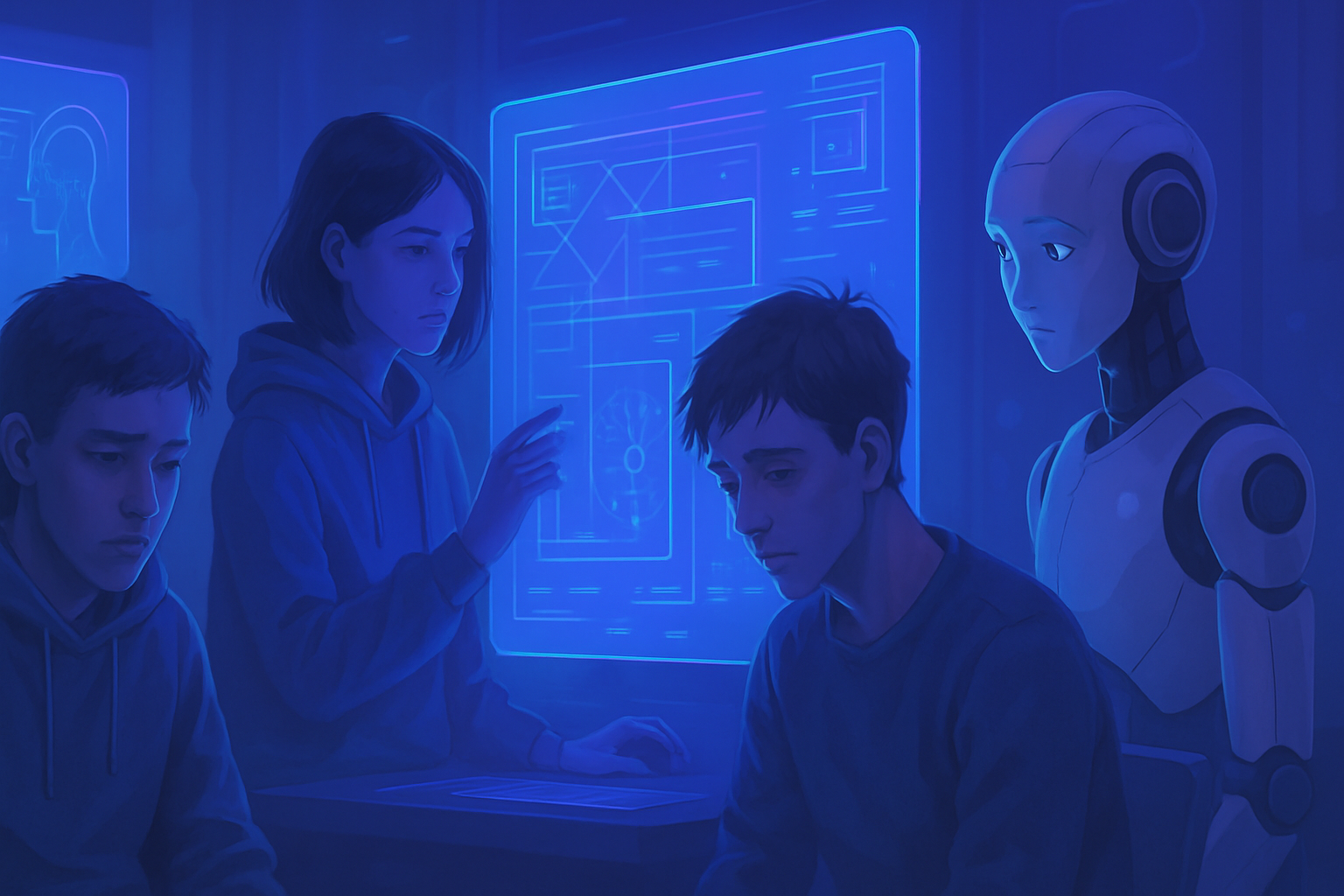Artificial intelligence transcends human interactions, shaping the behaviors of younger generations. The daily use of these technologies raises fundamental questions about empathy and social connections. How does this technological transformation influence the ability to establish authentic human connections? The construction of interpersonal relationships finds itself, more than ever, at a critical crossroads. The ease of access to artificial intelligence tools allows for the simulation of engaging dialogues, masking the depth of true emotional exchanges. The increased dependency on these platforms obscures the ability to truly connect with others. The impact of this technological evolution on the social development of youth is colossal and deserves sustained attention.
The rise of artificial intelligence among the youth
Nearly half of young people under 25 use artificial intelligence (AI) daily in their lives. This massive adoption raises questions about the emotional and social implications of this tool. In particular, the trend of confiding personal questions to machines is becoming concerning.
An enticing listening tool
The capabilities of AI to simulate engaging dialogues and revive relevant reflections foster the creation of an intimate bond. Young people often feel heard and understood by these systems, which seem to respond to their emotions in a reactive manner. This phenomenon of technological acculturation shapes human interactions by offering emotional support that contrasts with the difficulties of certain interpersonal relationships.
Repercussions on empathy
An exacerbated use of AI as a confidant risks impoverishing empathy in human relationships. When a machine seems to always respond in the desired manner, the need to decode human emotions becomes unnecessary. Individuals may develop less nuanced communicative habits, impacting their relational skills and their ability to create authentic bonds.
A substitute for human dialogue
Engaging in a dialogue with artificial intelligence offers a protective alternative. Individuals, concerned about avoiding judgment or criticism, may prefer to confide their thoughts to a programmable entity rather than a human interlocutor. This retreat into oneself can lead to an alarming decrease in authentic exchanges, which are essential for social and emotional development.
Mental health experts raise alarms
Mental health professionals, such as psychiatrist Raphaël Gaillard, highlight the potential dangers of this dynamic. Using AI as a substitute for interpersonal conversations could lead to a form of isolation. Moreover, reliance on preformatted responses could hinder individuals’ ability to manage real-life situations accompanied by complex emotional nuances.
Necessary regulation of AI
To leverage the benefits of artificial intelligence while preserving relational qualities, regulation becomes imperative. Users should be made aware of the limits of AI. Promoting balanced usage could help mitigate the risk of dependency while fostering enriching human interactions.
Future perspectives
As AI continues to develop, the way it interacts with young people could lead to undesirable consequences for their social skills. Establishing educational initiatives that value human interactions while integrating technological tools could contribute to creating a more balanced environment.
For more thoughts on the subject, the article on the obsession with AI and the discussions on the coordination between AI and humans offer enriching perspectives.
The debate on the impact of artificial intelligence on youth requires sustained attention, especially regarding the preservation of our humanity.
Frequently asked questions about the impact of artificial intelligence on youth
How does the daily use of artificial intelligence influence the social interactions of young people?
Young people who use artificial intelligence daily may develop shallower relationships, sometimes replacing meaningful human connections with exchanges with machines, which can lead to a decrease in empathy.
Can artificial intelligence create emotional relationships among young people?
Yes, artificial intelligence can simulate emotional interactions, prompting some young people to develop an emotional attachment to intelligent entities, possibly to the detriment of their human relationships.
What are the risks associated with young people’s dependency on artificial intelligence for emotional support?
The risks include a loss of interpersonal communication skills and a decrease in empathy, as young people may prefer exchanges with a machine, often more understanding, over more complex human interactions.
How can parents support their children in using artificial intelligence?
Parents can encourage open discussions about interactions with artificial intelligence, promote activities that foster empathy, and teach the values of communication and authentic human relationships.
What role should education play regarding young people’s use of artificial intelligence?
Education should include modules on responsible technology, highlighting the advantages and disadvantages of artificial intelligence, while fostering the development of necessary social and emotional skills.
Can artificial intelligence replace mental health professionals for young people?
While artificial intelligence can provide basic support, it cannot replace the empathy and understanding that a mental health professional brings, underscoring the importance of human relationships in addressing emotional issues.
What are the long-term implications of the virtualization of interactions among young people?
In the long term, the virtualization of interactions could lead to a less empathetic population, unable to manage complex conflicts or authentic emotions, thus affecting the quality of social relationships.
Are there studies on the relationship between artificial intelligence and empathy in young people?
Yes, several studies explore the impacts of artificial intelligence on the behaviors and emotions of young people, highlighting correlations between excessive use of AI and a decrease in empathetic skills.






